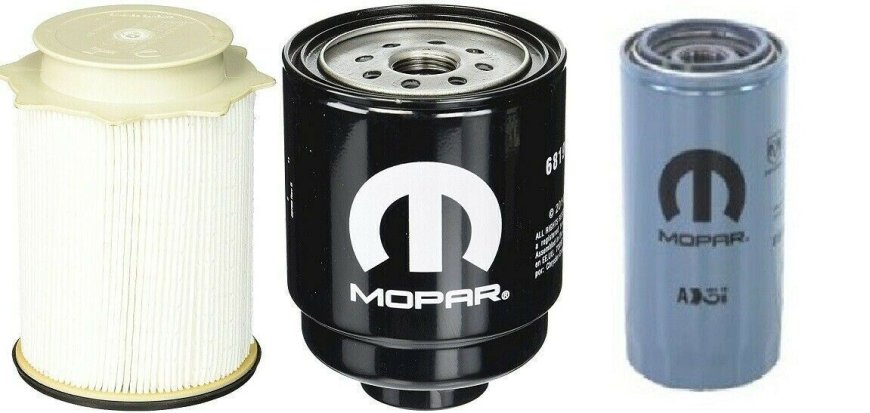The Unsung Hero of Your Engine: Understanding the Automotive Fuel Filter
Dive deep into the critical role of the automotive fuel filter, an essential component for every internal combustion engine. This comprehensive guide explains what a fuel filter is, how it works to protect your engine from harmful contaminants, and why its proper function is paramount for optimal performance, fuel efficiency, and extended engine life. Learn to recognize the common symptoms of a clogged fuel filter and discover recommended replacement intervals to keep your vehicle running smoothly and avoid costly repairs.

The automotive fuel filter is a small but crucial component in any internal combustion engine vehicle. Its primary role is to ensure that clean fuel reaches the engine, protecting sensitive fuel system components from contaminants that can cause significant damage and lead to costly repairs. Without a functioning fuel filter, dirt, rust, and other debris present in fuel can clog injectors, wear down fuel pumps, and even lead to engine failure.
What is a Fuel Filter?
A Automotive Fuel Filter is a device that is typically made of a fine, porous material, often paper or synthetic fiber, housed within a metal or plastic casing. Its design allows fuel to pass through while trapping solid particles. Fuel filters are located somewhere along the fuel line, between the fuel tank and the engine. Their exact placement can vary depending on the vehicle's make and model, with some vehicles having an in-line filter, while others may have a filter integrated into the fuel pump module within the fuel tank. Modern vehicles, particularly those with fuel injection systems, rely heavily on highly efficient fuel filters due to the extremely tight tolerances and small orifices of their fuel injectors.
How Does a Fuel Filter Work?
The operation of a fuel filter is based on a simple filtration principle. As fuel is drawn from the fuel tank by the fuel pump, it passes through the fuel filter. The filter media acts as a barrier, allowing the liquid fuel to flow through its pores while trapping any solid impurities that are larger than the pore size. These trapped contaminants accumulate within the filter over time.
There are different types of fuel filters, each designed for specific fuel types and engine systems:
- In-line Filters: These are the most common type, located along the fuel line. They are often cylindrical and are relatively easy to replace.
- Canister Filters: These are self-contained units, often screw-on, similar in appearance to oil filters.
- Cartridge Filters: These consist of a replaceable filter element housed within a permanent casing.
- Fuel Tank Integrated Filters: Some vehicles have the fuel filter as part of the fuel pump assembly located inside the fuel tank.
Regardless of the type, the fundamental principle remains the same: physical separation of contaminants from the fuel.
Why is a Fuel Filter Important?
The importance of a fuel filter cannot be overstated. Here's why it's a vital component:
- Engine Protection: The most critical function of a fuel filter is to protect the engine. Fuel from gas stations, even seemingly clean fuel, can contain various impurities. These include rust particles from fuel tanks and delivery systems, dirt and dust, and even microscopic debris. If these contaminants reach the engine, they can severely damage delicate components.
- Fuel Injector Longevity: Modern fuel injection systems operate at very high pressures and use extremely fine nozzles to atomize fuel. Even tiny particles can clog these injectors, leading to misfires, reduced fuel efficiency, and eventually, injector failure. Replacing fuel injectors can be an expensive repair.
- Fuel Pump Protection: The fuel pump itself can be damaged by abrasive particles in the fuel. A clean fuel supply extends the life of the fuel pump.
- Optimal Engine Performance: A clean fuel supply ensures consistent and efficient fuel delivery to the engine. This translates to smooth engine operation, optimal power output, and good fuel economy. A clogged fuel filter restricts fuel flow, leading to symptoms like hesitation, stalling, and reduced acceleration.
- Emission Control: By ensuring proper fuel combustion, a clean fuel filter indirectly contributes to lower harmful emissions. When fuel is burned efficiently, fewer pollutants are released into the atmosphere.
Symptoms of a Clogged Fuel Filter
Over time, the fuel filter will accumulate enough contaminants to restrict fuel flow. This can manifest in several noticeable symptoms:
- Difficulty Starting: If the engine struggles to get enough fuel, it may crank longer before starting, or not start at all.
- Engine Misfires or Stalling: Insufficient fuel pressure can cause the engine to misfire, run rough, or stall, particularly under acceleration.
- Reduced Engine Performance: You might experience a noticeable drop in power, hesitation when accelerating, or a general lack of responsiveness from the engine.
- Poor Fuel Economy: When the engine isn't receiving enough fuel efficiently, it may try to compensate, leading to increased fuel consumption.
- Check Engine Light: In some modern vehicles, a severely restricted fuel filter can trigger the check engine light, indicating an issue with the fuel system.
- Rough Idling: The engine may idle erratically or roughly due to inconsistent fuel supply.
When to Replace Your Fuel Filter
The replacement interval for a fuel filter varies significantly depending on the vehicle manufacturer's recommendations, driving conditions, and fuel quality. Generally, it's a good idea to consult your vehicle's owner's manual for specific guidelines. However, common recommendations range from every 20,000 to 100,000 miles (approximately 32,000 to 160,000 kilometers). Watch it
It's important to note that if you frequently refuel at questionable gas stations or drive in dusty environments, you might need to replace your fuel filter more often. Even if your owner's manual suggests a longer interval, paying attention to the symptoms of a clogged filter and replacing it proactively can save you from more significant problems down the line. Replacing a fuel filter is generally a straightforward and relatively inexpensive maintenance task, especially compared to the cost of repairing damaged fuel injectors or a fuel pump. Regular maintenance of this small component ensures the longevity and optimal performance of your vehicle's engine.



















































































































































